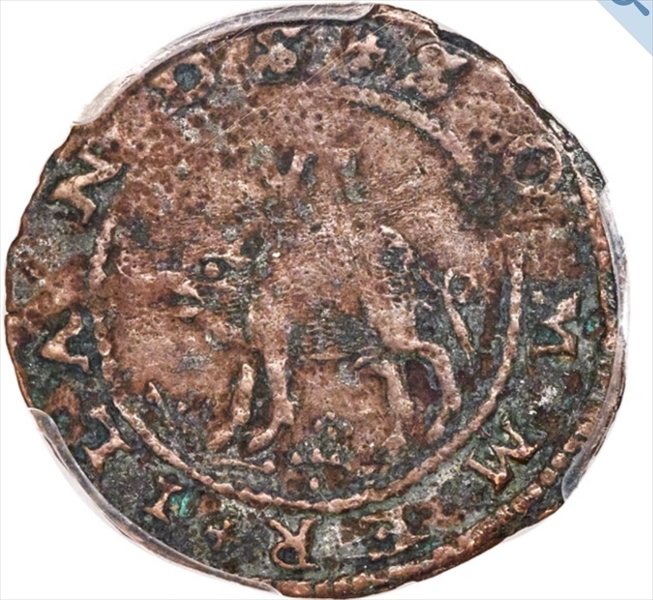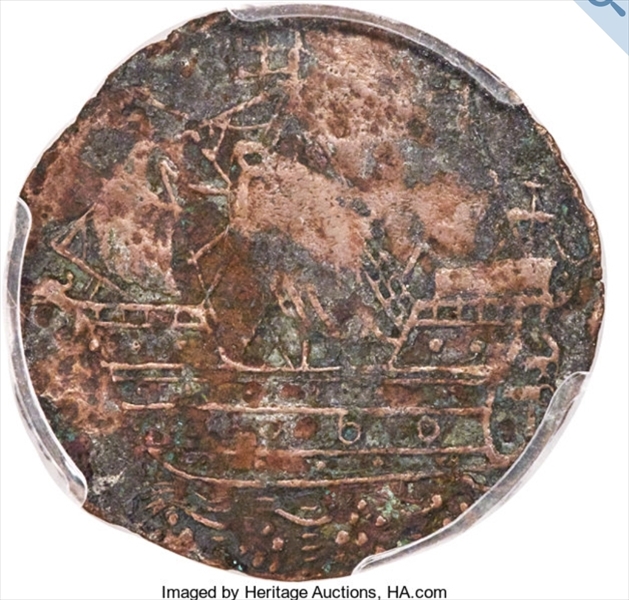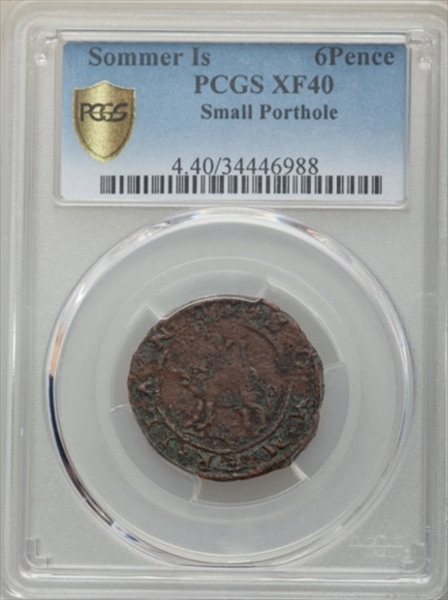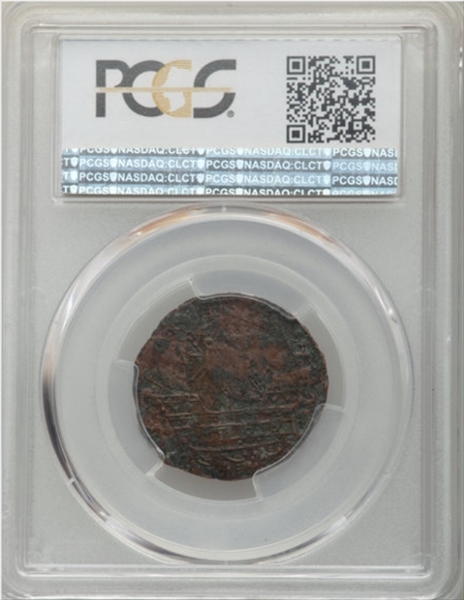(1616) 6P Sommer Islands, Small Portholes XF40 认证号34446988, PCGS号4
专家评论
Ron Guth
The Sommer Island Sixpence were issued circa 1615-1616 as coinage for use on the island today known as Bermuda. Sommer Islands is a derivative of the name of the Englishman George Somers, who became stranded on the island in 1609 along with approximately 500 settlers originally intended for Virginia. A substantial population of wild hogs, brought to the island years earlier by Spanish explorers, helped Somers and his group survive their year-long ordeal.
Sommer Island coins come in denominations of Twopence, Threepence, Sixpence, and Shillings (Twelve Pence). They are all made of a base metal (sometimes called brass), then washed with silver to make them appear more valuable than they actually were. Today, only a few of the known examples show even a trace of the original silvering. Most of the known survivors are corroded or pitted due to the reactive nature of the metal and the corrosive action of the salt water and humid air in Bermuda.
Sixpence are known in two types: Large Portholes and Small Portholes. The Small Portholes is the rarer of the two types.
Currently, the finest Small Portholes Somer Island Sixpence is an NGC AU50 (with traces of original silvering).
状况普查 了解更多
| #1 PCGS XF40 |























